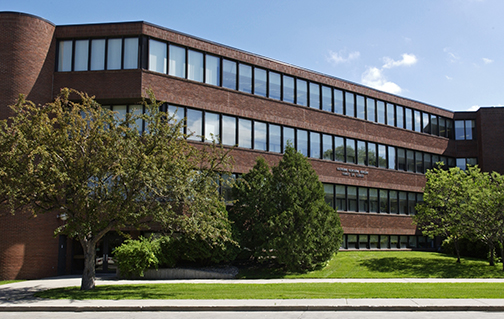
Social Science Education
This is an archived copy of the 2018-19 catalog. To access the most recent version of the catalog, please visit https://catalog.ndsu.edu.
Social science involves the study of people and their interactions with each other, with their social and political institutions and with their environments. Accordingly, the social science education major includes a broad range of courses and subjects. Students are expected to demonstrate both breadth and depth of understanding in the academic disciplines that make up the social sciences. Candidates in the social science education major are prepared to teach a diverse curriculum to a diverse student population. The major consists of groups of courses and experiences in a variety of social science disciplines.
The social science education student should work closely with an advisor to be sure that the general education courses taken will provide a strong foundation for the advanced courses in the major. Students may enroll in the 300-level professional education courses before being formally admitted to the School of Education (SOE). Prior to enrolling in the 400-level courses, students must complete the application for admission to the SOE, attain a minimum of a 2.75 grade point average overall in their course work, in education courses, in teaching specialty courses, and pass the PRAXIS I test. Requirements for admission to the SOE are available at www.ndsu.edu/ted.
Student teaching is the culmination of the teaching program. Students have the opportunity to apply skills acquired in college courses under the supervision of an experienced social science educator. Upon completing this program, students are eligible for certification to teach social science in most states. The program is accredited by the National Council for Accreditation of Teacher Education.
Plan of Study
Please note this is a sample plan of study and not an official curriculum. Actual student schedules for each semester will vary depending on start year, education goals, applicable transfer credit, and course availability. Students are encouraged to work with their academic advisor on a regular basis to review degree progress and customize an individual plan of study.
| First Year | |||
|---|---|---|---|
| Fall | Credits | Spring | Credits |
| ANTH 111, SOC 110, or PSYC 111 | 3 | ENGL 120 | 3 |
| COMM 110 | 3 | Quantitative Reasoning | 3 |
| ENGL 110 | 4 | Wellness | 2 |
| Science & Technology | 3 | GEOL 106 | 3 |
| HIST 101 | 3 | GEOL 106L | 1 |
| HIST 102 | 3 | ||
| 16 | 15 | ||
| Second Year | |||
| Fall | Credits | Spring | Credits |
| EDUC 321 | 3 | EDUC 322 | 3 |
| GEOG/ECON/POLS Elective | 3 | GEOG/ECON/POLS Elective | 3 |
| Science & Technology | 3 | HIST 104 | 3 |
| HIST 103 | 3 | HIST Elective (recommended but not required: HIST 135, 261 or 271) | 3 |
| PSYC 250 (or ANTH/SOC Elective) | 3 | PSYC/ANTH/SOC 300-400 Elective | 3 |
| Complete Praxis Core Academic Skills Exam | Elective | 1-3 | |
| Apply to the School of Education | |||
| 15 | 16-18 | ||
| Third Year | |||
| Fall | Credits | Spring | Credits |
| EDUC 451 | 3 | EDUC 489 | 3 |
| GEOG/ECON/POLS Elective | 3 | GEOG/ECON/POLS Elective | 3 |
| GEOG/ECON/POLS Elective | 3 | GEOG/ECON/POLS Elective | 3 |
| HIST Non-US 300-400 Elective | 3 | HIST Non-US 300-400 Elective | 3 |
| HIST US 300-400 Elective | 3 | HIST US 300-400 Elective | 3 |
| 15 | 15 | ||
| Fourth Year | |||
| Fall | Credits | Spring | Credits |
| EDUC 481 | 3 | EDUC 485 | 1 |
| EDUC 486 | 3 | EDUC 487 | 9 |
| HIST 390 | 3 | EDUC 488 | 3 |
| GEOG/ECON/POLS Elective | 3 | ||
| GEOG/ECON/POLS Elective | 3 | ||
| Apply for Student Teaching | |||
| Complete Praxis PLT Exam | |||
| Complete Praxis II Content Exam | |||
| 15 | 13 | ||
| Total Credits: 120-122 | |||
